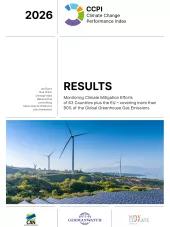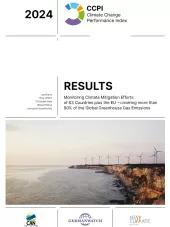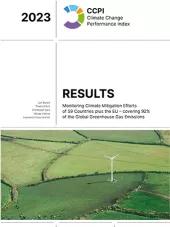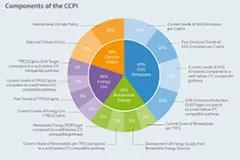No fossil fuel phase-out yet despite rapid renewables growth
Each year, the Climate Change Performance Index (CCPI), co-authored by Germanwatch, NewClimate Institute, and CAN International, assesses the progress made by the largest emitters in terms of emissions, renewables and climate policy. The 63 countries plus the European Union assessed in the CCPI are responsible for 90% of global emissions.
Renewable energy is making rapid progress in almost every high-emitting country. However, too many countries are still clinging to the fossil fuels business model, especially for fossil gas. This year, the CCPI 2025 paints a mixed picture: While 61 of the 64 countries have increased the share of renewables in their energy mix over the past five years, emission trends in 29 countries are still rated low or very low.
As in previous years, the top three ranks remain vacant. Countries still need to accelerate climate action to align with the temperature limit of the Paris Agreement. Denmark remains the top-ranked country (4th). It was also the only country to achieve high performance in the climate policy rating. Still, Denmark does not perform well enough to earn an overall very high rating. Denmark is followed by the Netherlands (5th), although its new government bodes ill for climate policy. The United Kingdom was this year’s big climber and took 6th place. The coal phase-out and the government’s pledge against new licences for fossil fuel projects played a key role in its rise.
Unfortunately, these efforts are not visible everywhere. The example of Argentina (59th), one of the biggest losers of this year’s CCPI, shows how a change of government can cause a step change in the wrong direction: Argentina is among the lowest-ranked countries. The four last-placed countries in the CCPI are Iran (67th), Saudi Arabia (66th), the United Arab Emirates (65th) and Russia (64th). All four are among the largest oil and fossil gas producers worldwide. The share of renewables in their energy mix is lower than 3%. These countries show no sign of transitioning away from fossil fuels.
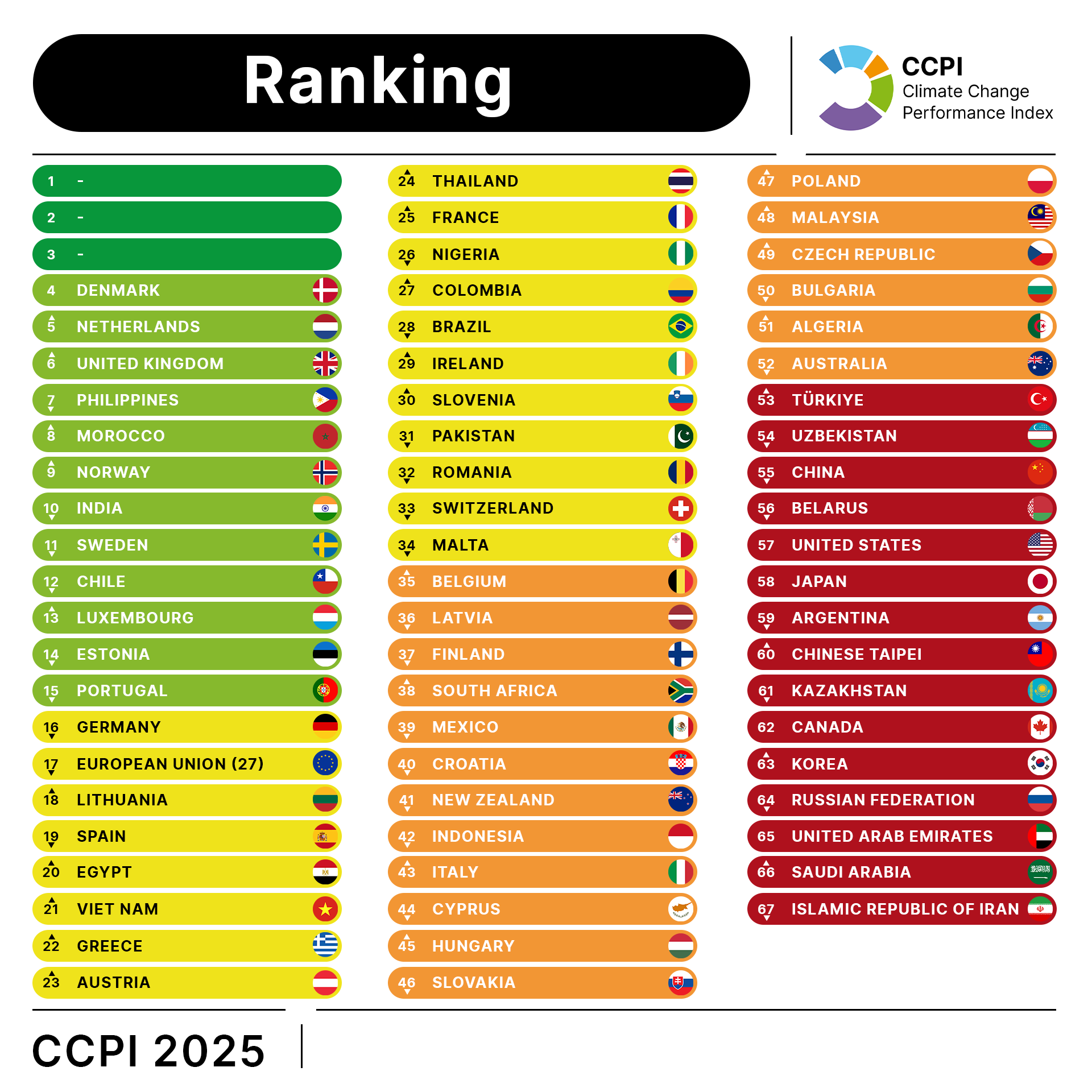
China – Massive expansion of renewables sends signals worldwide
The world’s biggest emitter China ranks 55th in the CCPI, falling to a very low level. Despite promising plans, trends and measures, China remains heavily dependent on coal and lacks sufficient climate targets. However, we are experiencing an unprecedented boom in renewables and emissions appear to have almost peaked.
The US, the second biggest emitter, remains in 57th place among the very low performers. More investment in renewables and clean transport, as well as an end to fossil fuel subsidies would be important next steps. However, the outcome of the election now will determine climate performance in the US for the coming years.
With the UK and India (10th), only two G20 countries are among the high performers in the CCPI. Fourteen G20 countries receive an overall low or very low. The G20 is particularly responsible for drastically cutting emissions, as its members account for more than 75% of the world’s greenhouse gas emissions. Russia, Saudi Arabia and South Korea (63th) are still the G20’s worst-performing countries and receive an overall very low.
EU: Green Deal shows effect – not a very low-performer among them
With Denmark and the Netherlands at the top of the CCPI, the EU (17th) as a whole is in the upper middle field. Sixteen EU countries are among the high and medium performers and, unlike in previous editions, no EU country receives an overall very low rating.



